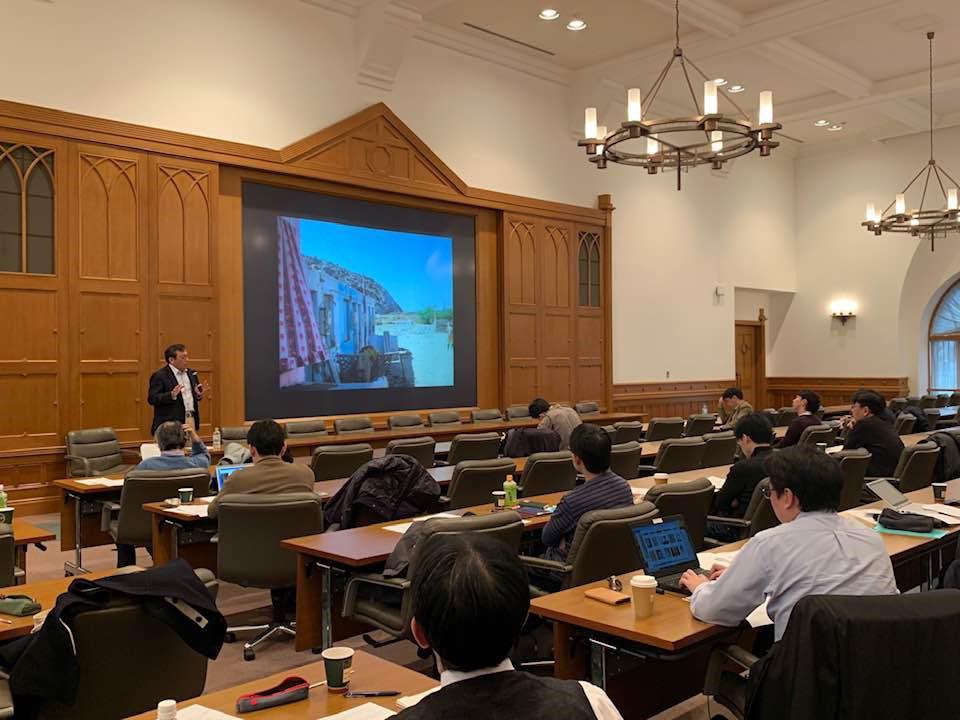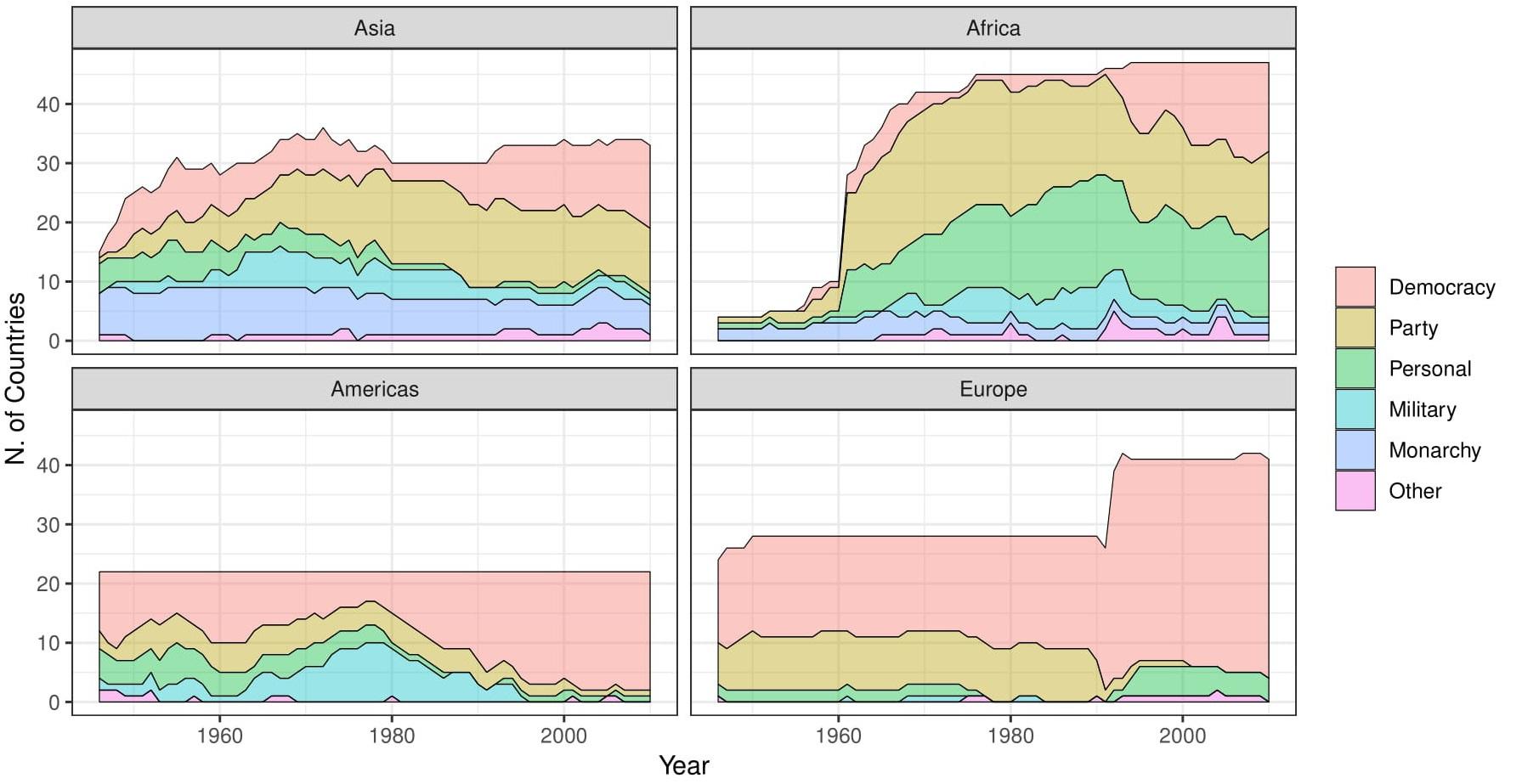Research outcomes of the Program for the Promotion of Next Generation Research Projects
Yuichiro Shimizu
Faculty of Policy Management
Asia is known for its diversity in many respects, including the variety of its regime types. While democracy became "the only game in town" in many parts of the world, as Figure 1 shows, Asia is home to many regime types, including democracy (e.g., Japan and Indonesia), one-party rule (e.g., Vietnam), personalistic rule (e.g., North Korea), monarchy (e.g., Brunei), and military regime (e.g., Thailand). It is also a region where the world's largest democracy (India) and most massive one-party rule (China) coexist. While studies of democratization and authoritarian resistance abound, we have little systematic understanding of the factors that explain the present-day regime diversity in Asia.

©2019 Keio University
To understand the historical roots of Asia's regime diversity, this project addresses two inter-related questions focusing on the period around decolonization. Firstly, what factors influenced the formation of various types of political regimes at the time of decolonization? Secondly, what affected the stability of the first regime after independence? Answering these questions would shed light on the reasons behind the contemporary regime diversity in Asia. Our preliminary claims are that in most cases the nature of the leadership groups that led independence strongly influences the type of regime that is formed in the wake of decolonization. Furthermore, the factors that impact the nature of leadership during decolonization are the inclusiveness of political institutions and the political orientations (communist or nationalistic) of those leaders around the time of decolonization.
The project is a collaboration among 17 scholars. Each collaborator (except the one who is in charge of preparing the theoretical framework) is a specialist on the country he or she examines. The countries under study are Japan, China, North Korea, South Korea, Taiwan, Indonesia, Philippines, North Vietnam, South Vietnam, Laos, Cambodia, India/Pakistan, Sri Lanka, and Thailand. Our coverage of East, Southeast, and South Asian countries under a common analytical framework makes this project unique, and we hope to contribute to the studies of the political history of these countries, as well as to research on regime transition and decolonization.
One of the highlights of our research activities during the funding period was the two-day research seminar held on January 12-13 in 2019 at Keio University's Mita Campus. During this seminar, which was open to the public, all project members presented their findings. There were about 60 participants in addition to our project members, and the project benefited tremendously from the comments and questions from the floor.

Figure1 Regime Types by Region ©2019 Keio University
Since the fiscal year 2018, the project has received additional funding by the Japan Society for the Promotion of Sciences (JSPS KAKENHI Grant Number JP 18H00816) for another three years. During this second round of funding, we plan to publish an edited volume in Japanese. We also aim to publish an English translation of the Japanese volume if we are successful in obtaining funding for the translation.
Keio University Program for the Promotion of Next Generation Research Projects
The Keio University Program for the Promotion of Next Generation Research Projects subsidizes research costs with the aim of finding solutions to challenges and of promoting global academic research in order to allow Keio University faculty members to establish a presence as core researchers.